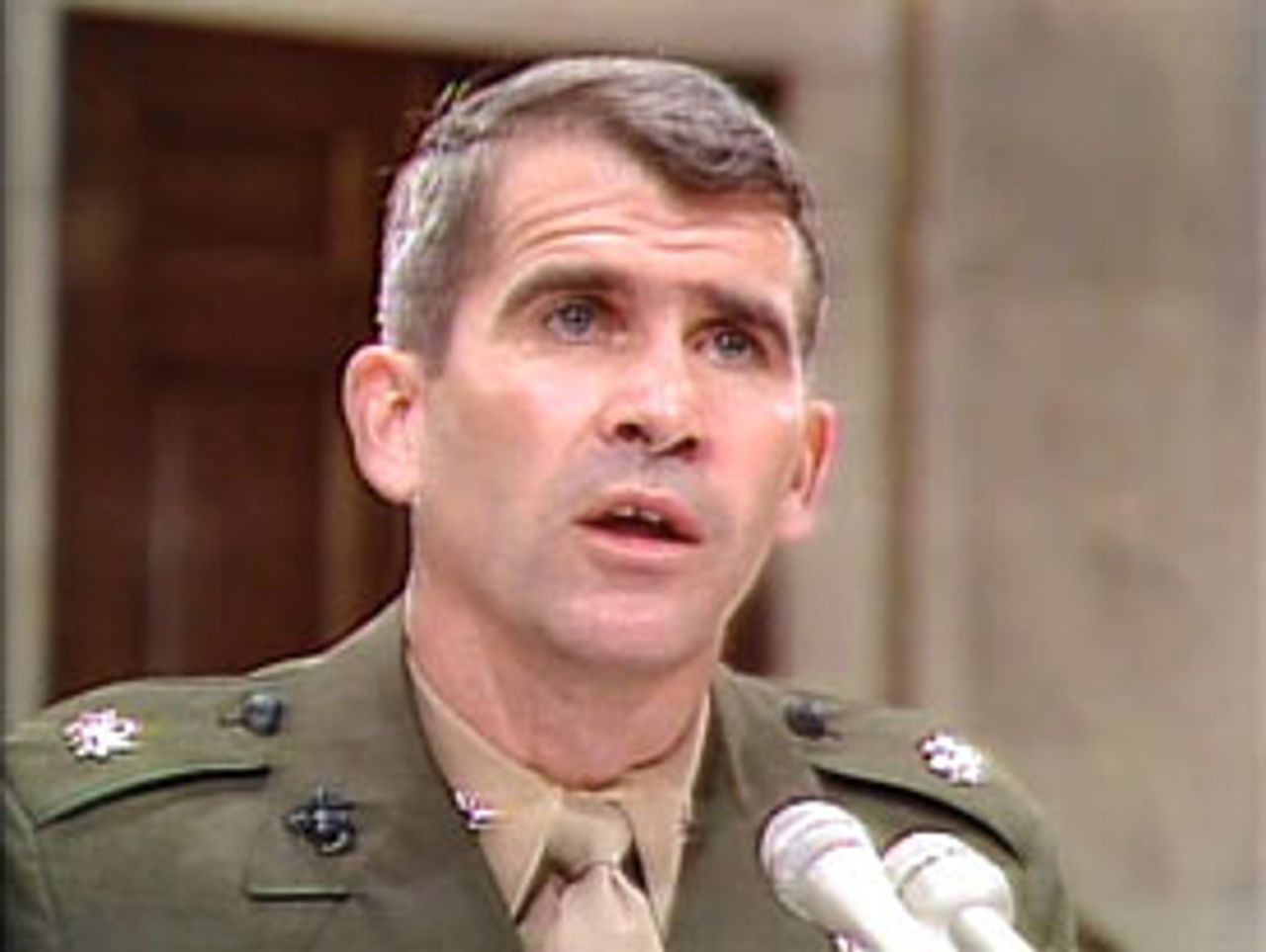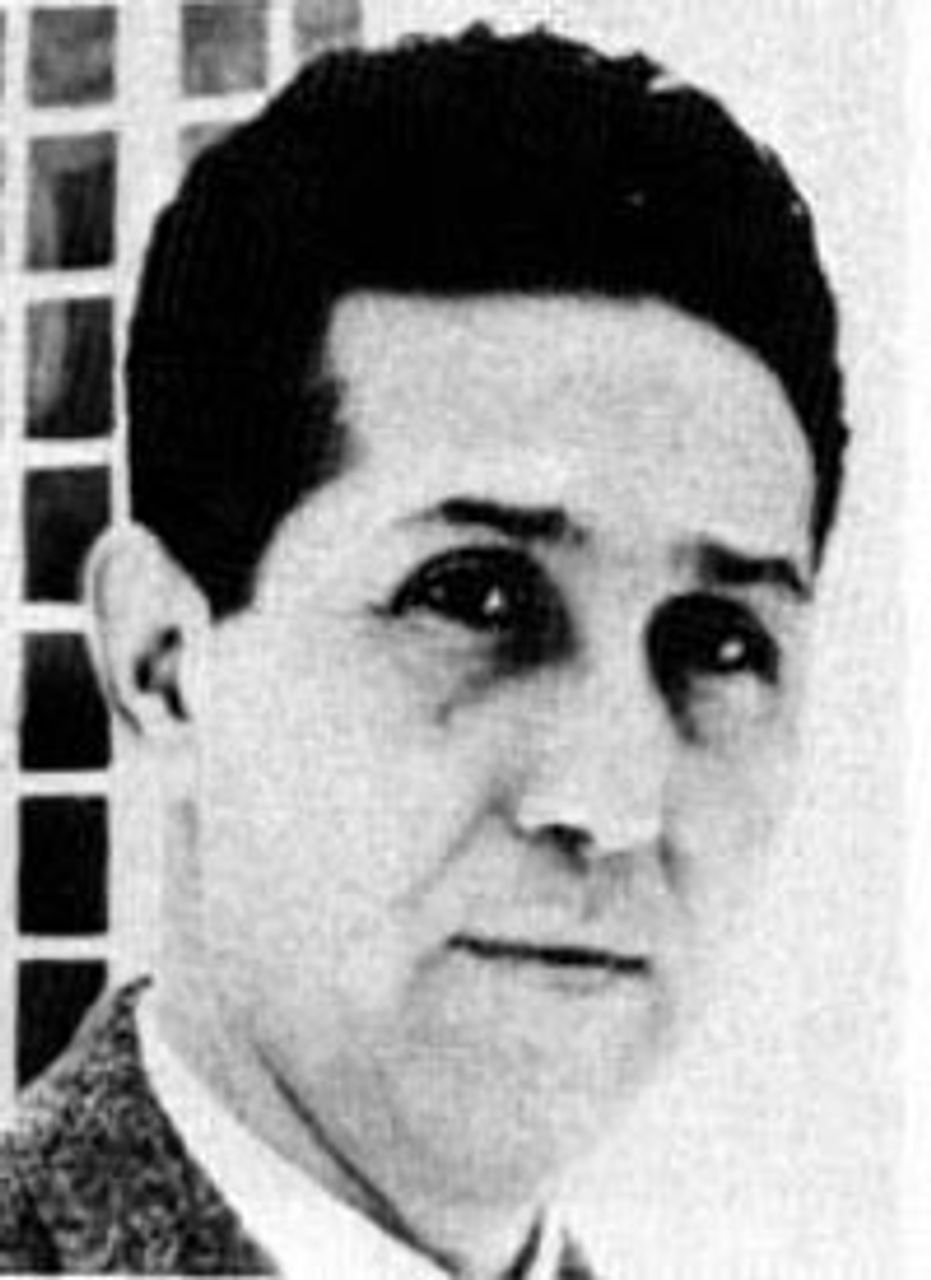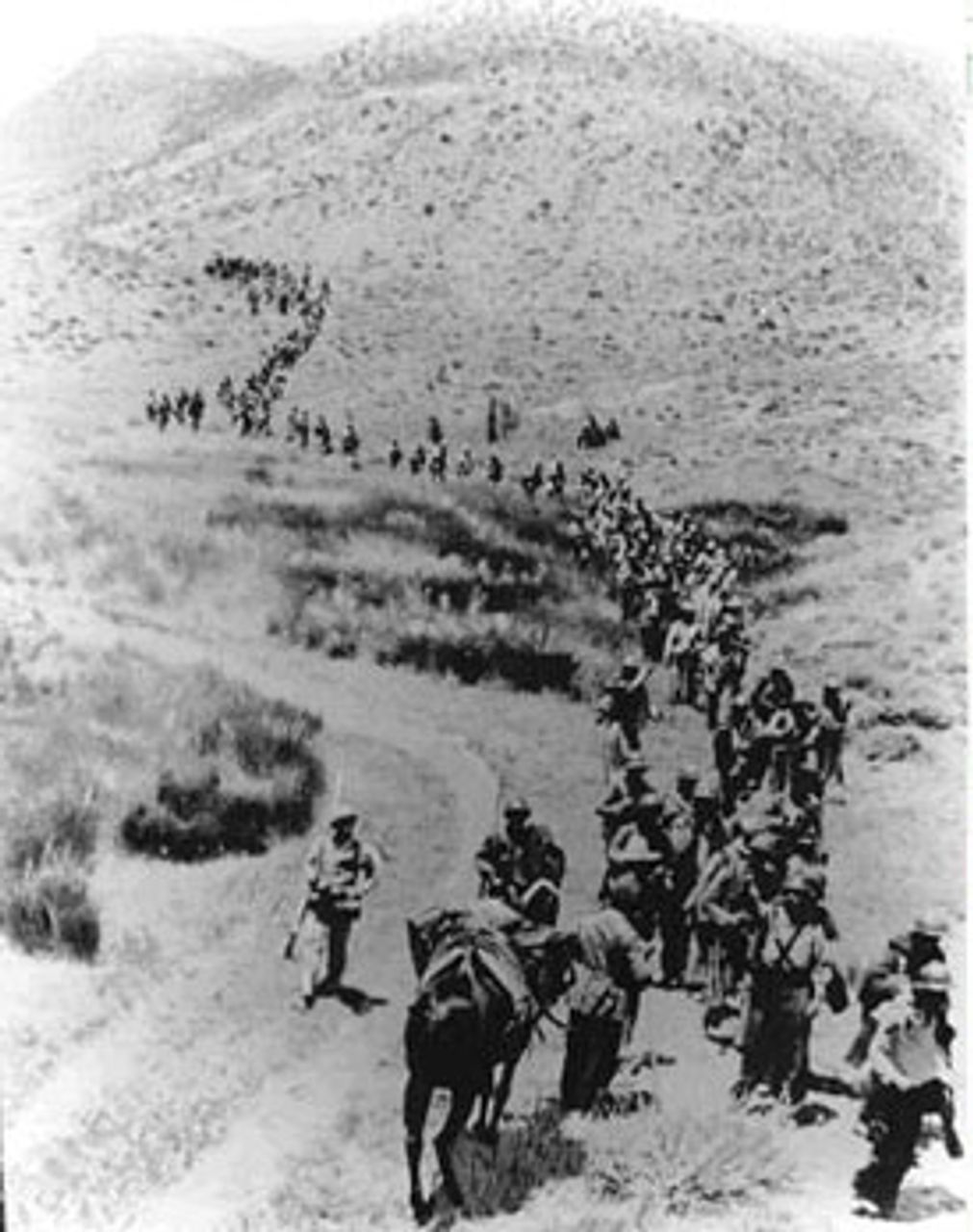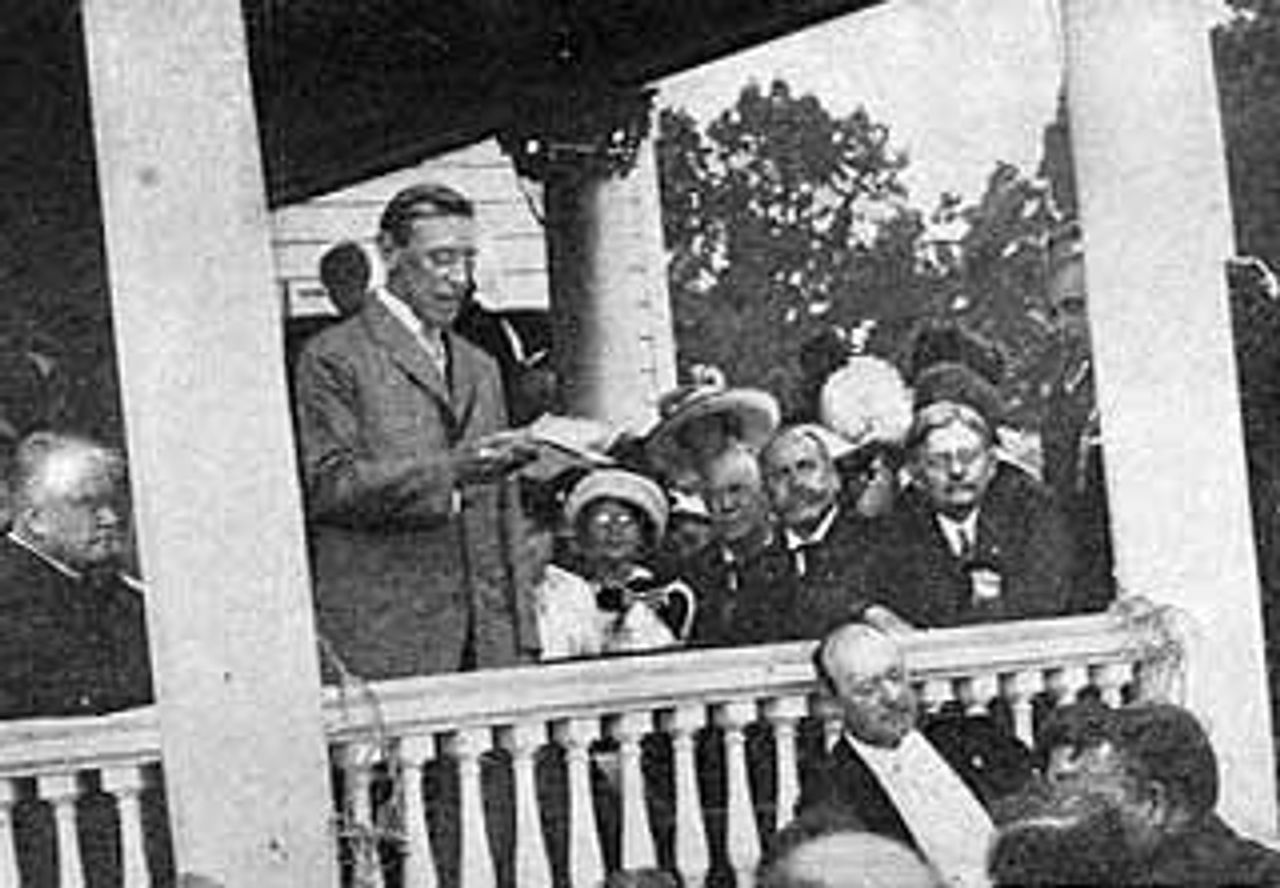This Week in History provides brief synopses of important historical events whose anniversaries fall this week.
25 Years Ago | 50 Years Ago | 75 Years Ago | 100 Years Ago
25 years ago: Iran-Contra conspirator Oliver North defiant before Congress
 Oliver North testifying before Congress
Oliver North testifying before CongressTuesday, July 7, 1987 was Lt. Colonel Oliver North’s first day before the joint congressional hearings on the Iran-Contra affair. North’s long-awaited testimony put a spotlight on the existence and functioning of the secret state-within-the-state operations of the Reagan Administration’s plot to arm and sustain a covert war against the Sandinista government in Nicaragua in spite of legislation by Congress to prevent such intervention.
While the hearings were held to uncover the illegal covert operations in financing and directing the Contras, North and his attorney, Brendan Sullivan, treated his questioners with arrogance and contempt. When the committee co-chairman, Senator Daniel Inouye, sought to explain that the Uniform Code of Military Justice explicitly states that members of the armed forces are not responsible to obey illegal orders by their superiors, and also cited the Nuremberg trial prosecution of Nazi war criminals, North’s attorney interrupted, shouting that this was an insult to his client.
North’s testimony quickly revealed that he was a key player in a massive conspiracy that was directly run by the president himself. Rather than defending himself against charges of being at the center of an illegal military operation, North attempted to turn the tables on the congressmen by charging them with disrupting the plans of the “commander-in-chief.”
The news media slavishly switched their position in response to North’s testimony. They reported his performance as heroic and sought to build up his public credentials as a potential candidate for public office.
50 years ago: Formal independence from France for Algeria
 Ben Bella
Ben BellaOn July 3, 1962, France conceded the formal independence of its most important colony, Algeria, and on July 5 the new nation was formally established after 132 years of French rule.
The Algerian independence struggle, politically led by the nationalist FLN, had been pushed forward by masses of Algerian workers and peasants. For nine years, from 1954 through 1962, the French government of Charles de Gaulle and right-wing terrorists had attempted to drown the movement in blood. As many as 1 million Algerians died, and another two million were made refugees.
On July 5, hundreds of thousands of celebrating Algerians marched through the largely European sections of Oran. At a certain point shots rang out. In the violence that followed scores of Europeans and dozens of Algerians were killed. Neither the Algerian nor the French authorities intervened to stop the violence.
Tensions immediately erupted among the factions of the FLN leadership. Premier Ben Youssef Ben Khedda was opposed by Vice Premier Mohammed Ben Bella and sections of the military for the former’s accommodations with French imperialism, which threatened to undermine the credibility of the FLN. Khedda dismissed much of the FLN general staff, which flatly refused the order, and civil war seemed imminent.
On July 6, the International Confederation of Free Trade Unions (ICFTU), a pro-US international labor grouping headed by the AFL-CIO, announced it would send a delegation to Algeria to combat communist influence among Algerian workers. On July 8 ICFTU leader Irving Brown, a longtime operative for the CIA, met with leaders of the General Union of Algerian Workers and Premier Ben Khedda.
Also on July 6, the new Algerian government accused neighbor Morocco of invading and occupying the oasis Saf-Saf, 15 miles within Algerian territory. Both Morocco and Tunisia demanded a revision of the frontier established during French colonial domination of the Maghreb.
75 years ago: Brunete falls to Spanish Republican army
 The 15th International Brigade at Brunete,
The 15th International Brigade at Brunete,July 1937
Situated approximately fifteen miles west of Madrid, the small town of Brunete fell to Republican forces after a swift assault on July 6, 1937. The town, positioned on the El Escorial-Madrid road, between Perales and the Guadarrama River, was a key battleground. The Republican attack was designed to render the resupplying of Franco’s forces laying siege to the Spanish capital more difficult.
The offensive was also designed to relieve pressure on Madrid by drawing away Nationalist forces from their attempted encirclement of the city and so giving the Republican defense of Madrid respite, a chance to restock food and military supplies, and an opportunity to rebuild ramparts. The Nationalists had besieged the city since October the previous year.
Military advisers to the Republican army from the Soviet Union’s Red Army led by Komarin Gregori Kulik had been urging for the seizure Brunete for some months prior to the eventual attack, as a means of beginning a counter-offensive against General Franco’s army.
Republican artillery and air force opened a massive bombardment on Nationalist defenses for thirty minutes at daybreak on the morning of the July 6. The entire Republican assault utilized 60,000 troops comprised of both regular army units and International Brigades, 150 planes, 20 field batteries and 128 tanks.
Once the barrage stopped, Republican forces encircled the town and by midday Brunete had fallen. However, an offensive by Republican armies was forced back by fierce fascist resistance when they attempted to advance south of Brunete. Over July 7-8 the villages of Villanueva de la Canada and Quijorna also fell to Republican forces after exceptionally heavy fighting, with both sides losing large numbers of men and military hardware.
100 years ago: Woodrow Wilson wins Democratic Party nomination
 Wilson accepting nomination
Wilson accepting nominationOn July 2, 1912, the Democratic National Convention nominated Woodrow Wilson for the 1912 presidential election. The convention, which ran from June 25 to July 2 was dominated by the contest between Wilson, then governor of New Jersey, and House Speaker Champ Clark, who was regarded by many as the frontrunner.
While Clark came to the convention having won more primaries than Wilson, he did not have the two-thirds vote required to secure nomination. Clark won the first ballot at the convention receiving 440¼ votes to Wilson’s 324, however he still lacked the mandated two-thirds majority. Subsequent ballots followed a similar course, with Clark defeating Wilson but unable to secure two-thirds of the vote. Clark remained the favorite. Never before had a candidate who won a clear majority of the first ballot failed to secure nomination.
A factor in Wilson’s eventual victory was the intervention of William Jennings Bryan, a three-time presidential candidate and a leading figure in the populist wing of the Democratic Party. At the beginning of the convention, Clark had joined with party figures close to Tammany Hall, the notoriously corrupt Democratic Party machine in New York, to prevent Bryan from being elected temporary chairman of the convention. Bryan saw this as an indication that Clark had struck a deal with Tammany Hall to run as a conservative candidate if nominated. He put forward a resolution denouncing any candidate associated with the “privilege-seeking and favor-hunting class.” On the 14th ballot, Bryan threw his support behind Wilson.
Wilson finally took the lead in the 30th ballot, winning the votes of the Indiana delegates in exchange for giving them their favored vice-presidential candidate. Following various factional maneuvers, southern candidate Oscar W. Underwood withdrew, aiding Wilson’s campaign. Wilson eventually secured nomination on the 46th ballot with 990 votes. The convention saw the most ballots required to win nomination since 1860.
